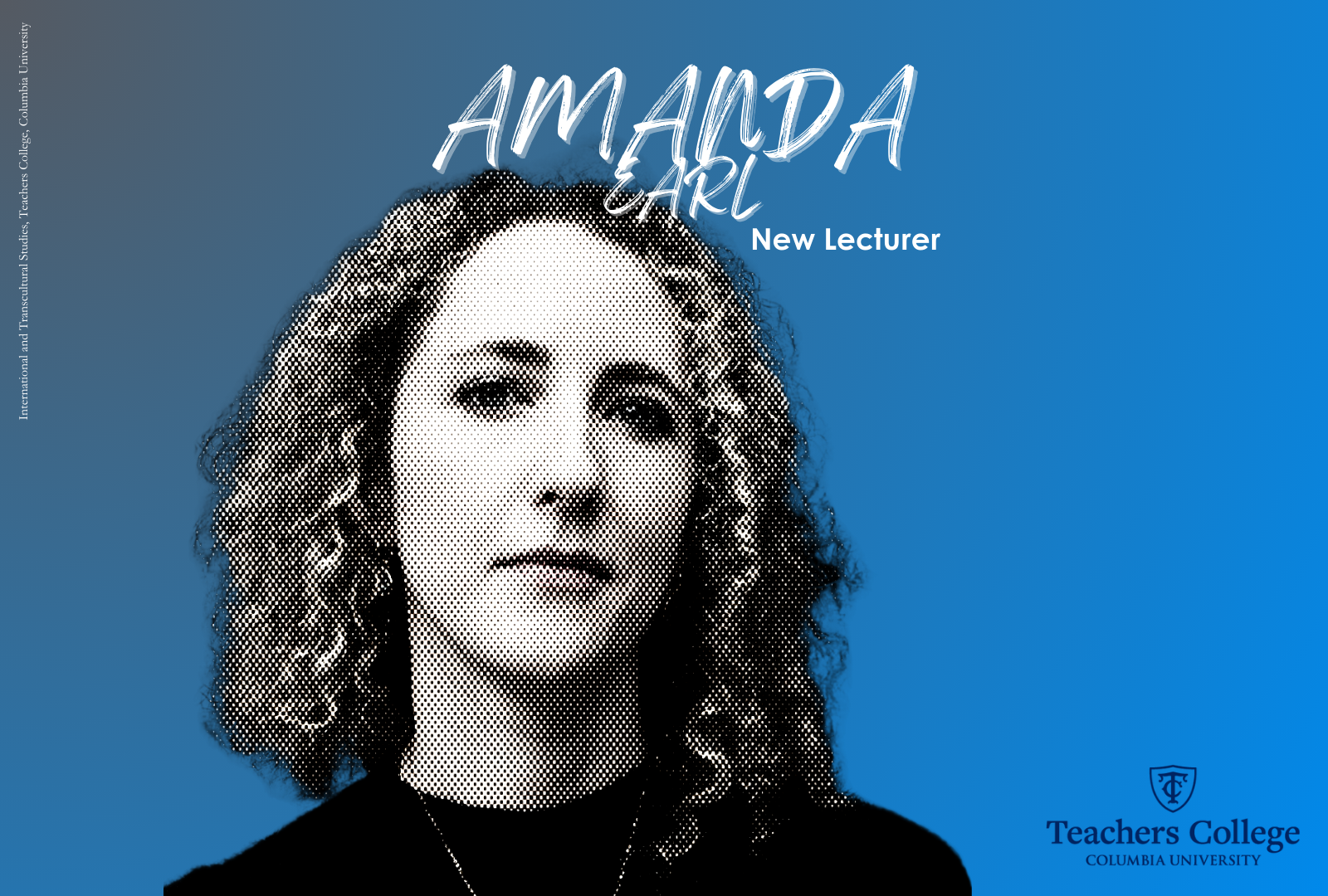The ICEd program is excited to announce Dr. Amanda Earl as a new lecturer starting in September 2024. Dr. Earl graduated with a PhD from the ICEd Program, having been advised by Professor Regina Cortina. She will be teaching several courses in Fall 2024, including Introduction to Research Methods in International and Comparative Education (ITSF 4009 003), The Family As Educator (ITSF 5023 002), and Language, Cultural Politics, and Education (ITSF 5050 002).
When asked about her academic journey at TC, she pulled on experiences from both her M.A. and doctoral studies. She said, “My academic journey at Teachers College began in 2014 when I enrolled in the M.A. in International Educational Development. At that time, I was working for a New York City-based nonprofit whose mission was helping first-generation students to and through university. Pursuing graduate study through a comparative and international lens in the ICEd program gave me the tools – such as theories from multiple disciplines – to understand the issues I was grappling with in educational practice in all their complexity and from a wider variety of perspectives. Working with professors in the International and Transcultural Studies (ITS) Department introduced me to intercultural and bilingual education in Latin America, which served as an illustrative foil for thinking more deeply about multicultural policies and practice in the US. I became interested in intercultural universities in Mexico which, rather than encouraging individual students to adapt to a mainstream academic culture are, in theory, focused on adapting postsecondary institutions to the diverse cultures, experiences, and aspirations of their students. This interest became the foundation for my dissertation study, which was aided by a Foreign Language and Area Studies Fellowship I was awarded to study Nahuatl, the most widely-spoken Indigenous language in Mexico, through Columbia’s Institute for Latin America Studies. This unique academic opportunity prepared me well for living among and working with Nahua communities while I was carrying out my doctoral research.”
When reflecting on her time at TC as a student, she responded that, “In short, I am thankful for my journey thus far at TC, which has expanded both my knowledge base and the network of educational and community actors I’ve been able to learn from and with.”
Moving onto her new position as lecturer, Dr. Earl expressed, “I’m thrilled to continue collaborating with my colleagues at TC, as well as to get to know the new graduate students and advisees of the ICEd program, who arrive from all over the world with rich professional experience and as experts on their own local communities and contexts. I’m especially looking forward to the discussions we will have in ITSF 5023: The Family as Educator, a course I will be teaching in the fall. Through analysis of literature and personal reflection, we will explore the contributions that those educators outside of formal schooling – such as parents, grandparents, siblings, mentors, and community leaders, among others – can and do make to teaching and learning throughout life. I imagine we will learn a lot about and from each other in this course. Since 2020, I have also been working at Teachers College Record, where we have been focused on supporting more emerging and international scholars to interact with and publish in the journal; I’m excited to leverage what I have learned in that role to support our M.A. and doctoral students who seek to publish their ideas.”
Dr. Earl’s current research interests include how educational policies and teaching practices impact students and their families living and working in pluricultural communities, particularly communities of rural, Indigenous, and immigrant young people across the US and Latin America. Her current research explores the relationships between formal schooling and the transmission and maintenance of nondominant languages, cultures, and ways of knowing. When speaking about her research she stated, “through ongoing, community-engaged study I have been carrying out in the Huastecan region of Veracruz, Mexico, I have sought to learn from students, their families, and educators about the possibilities and tensions that arise when, rather than making historically marginalized young people leave their rural communities to access university, the university comes to them.” Having previously worked as a classroom teacher and college counselor, Dr. Earl leverages theory to enhance practice and engage a diversity of educational stakeholders through her research.
